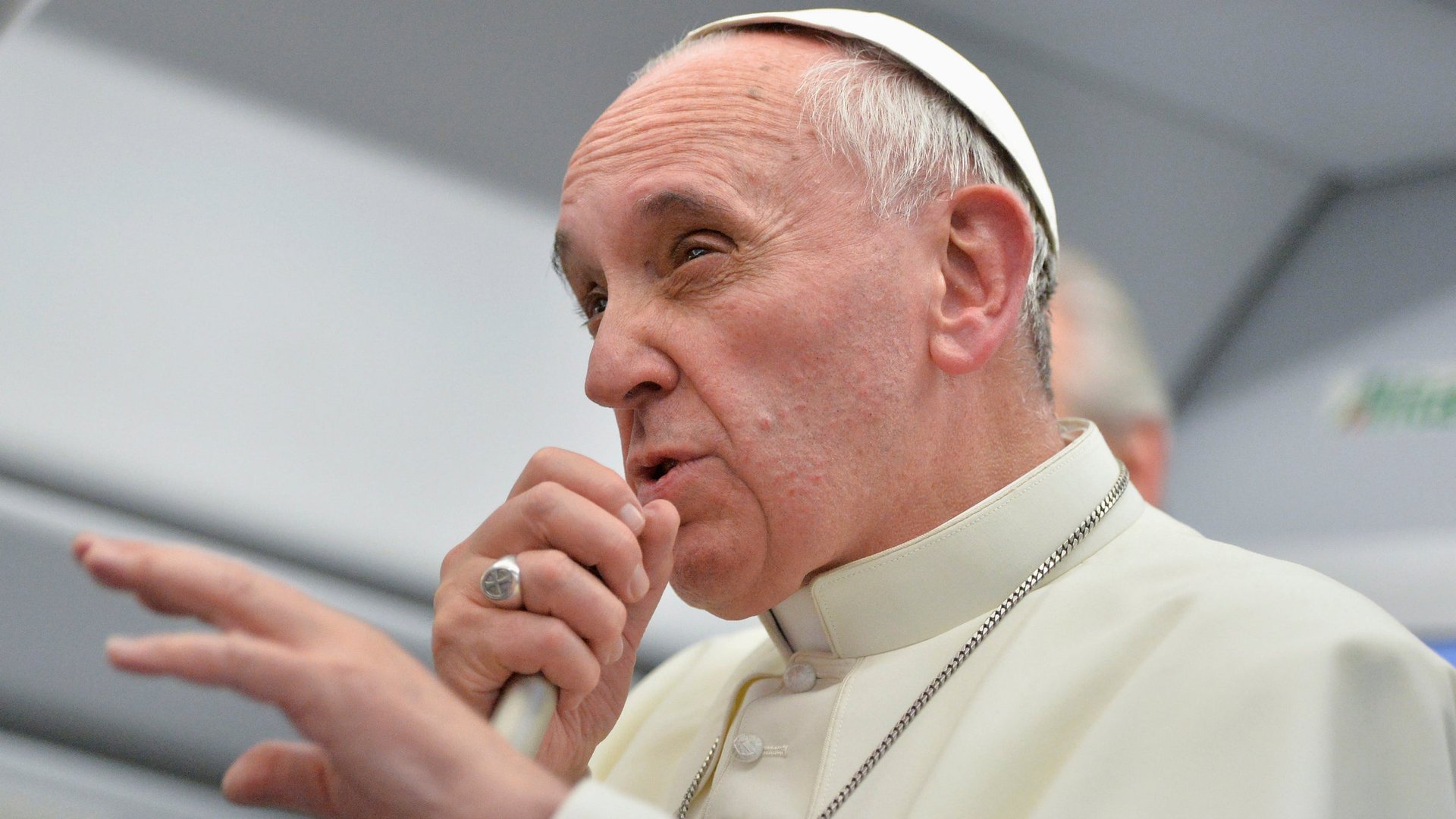This is not your typical pope
Pope Francis’s compassionate stance toward gay priests—”Who am I to judge a gay person of goodwill who seeks the Lord?” he said last night—is perhaps his most surprising statement to date. But since taking over the papacy in March, Francis has repeatedly made clear that he is not a typical modern pope. Here are some other progressive comments he has made.


Pope Francis’s compassionate stance toward gay priests—”Who am I to judge a gay person of goodwill who seeks the Lord?” he said last night—is perhaps his most surprising statement to date. But since taking over the papacy in March, Francis has repeatedly made clear that he is not a typical modern pope. Here are some other progressive comments he has made.
On why he supports young protestors
“A young man who doesn’t protest doesn’t suit me. A young man is essentially a nonconformist, and that is a very beautiful thing. You need to listen to young people, giving them outlets to express themselves and ensure they don’t get manipulated,” he said in an interview with Globo television.
On corruption in the church
“We need to avoid the spiritual sickness of a church that is wrapped up in its own world: when a church becomes like this, it grows sick. And if I had to choose between a wounded church that goes out on to the streets and a sick, withdrawn church, I would definitely choose the first one,” he said in during the Consistory held in response to recent controversies in the Vatican.
On low-wage labor
“A headline that impressed me so much the day of the Bangladesh tragedy, ‘Living on 38 euros a month’: this was the payment of these people who have died … And this is called ‘slave labor!’. And today in this world there is slavery that is made with the most beautiful gift that God has given to man: the ability to create, to work, to be the makers of our own dignity. How many brothers and sisters throughout the world are in this situation because of these, economic, social, political attitudes and so on … ” he said at Mass in Civitavecchia, a small town north of Rome.
On the pitfalls of capitalism
“I think about those who are unemployed often because of an economic conception of society that seeks egoistic profit regardless of social justice,” he said in St. Peter’s Square this spring.
On income inequality
“No one can remain insensitive to the inequalities that persist in the world! No amount of peace-building will be able to last, nor will harmony and happiness be attained in a society that ignores, pushes to the margins or excludes a part of itself.” he said to a crowd in one of Rio de Janeiro’s poorest slums.
On the need for changes in the church
“We knew that in Rio there would be great disorder. But I want trouble in the dioceses! I want to see the church get closer to the people. I want to get rid of clericalism, the mundane, this closing ourselves off within ourselves, in our parishes, schools or structures. Because these need to get out!” he told a crowd in Brazil last week.
On why Catholics are leaving the church
“Perhaps the church appeared too weak, perhaps too distant from their needs, perhaps too poor to respond to their concerns, perhaps too cold, perhaps too caught up with itself, perhaps a prisoner of its own rigid formulas,” he said in Rio de Janeiro last week.
On wasting food
“This culture of waste has made us insensitive even to the waste and disposal of food, which is even more despicable when all over the world many individuals and families are suffering from hunger and malnutrition,” he said to a crowd in St. Peter’s Square.
On dozing off in the afternoon
“Sometimes I doze off. The fatigue of the day makes you fall asleep, but God understands,” he said in St. Peter’s Square.